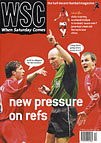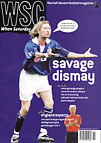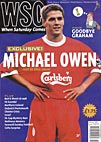 Stephen Wagg reflects on the achievements of the first man to manage England in a World Cup finals and how he cultured a generation of managers
Stephen Wagg reflects on the achievements of the first man to manage England in a World Cup finals and how he cultured a generation of managers
Walter Winterbottom lived until he was nearly 90, so a lot of English football lovers below a certain age have probably never heard of him. Still fewer among the club’s global “fan base” will have known, until this month’s obituaries, that he played for a season in Manchester United’s first team. He coached England when the team was no more than a series of grainy and occasional black and white images on the nation’s TV screens and he was gone before the medium got seriously involved with English football.



